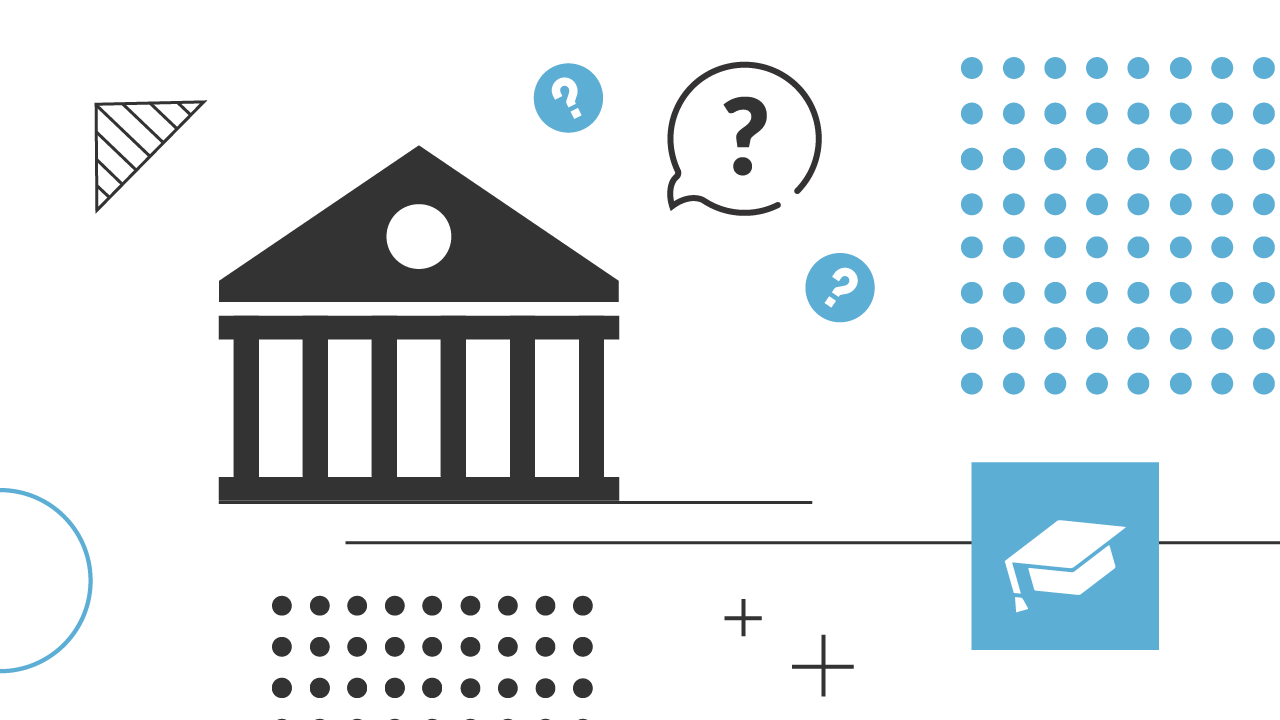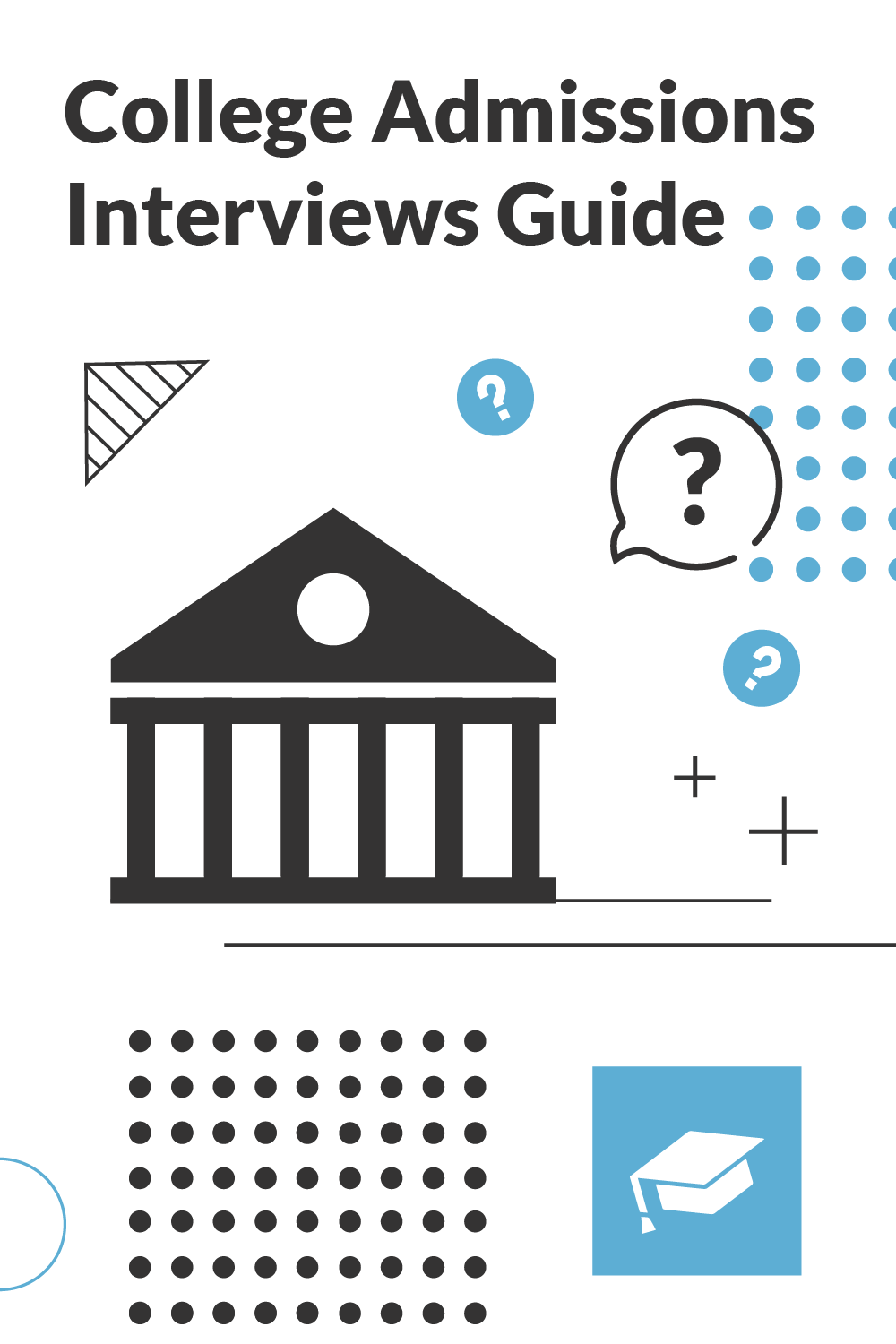
College admissions interviews serve as a critical component in evaluating prospective students. Their prominence has evolved over time, many colleges now deem admissions interviews optional or put less emphasis on them entirely.
But even if they aren't as popular as before, they still remain an important tool for admissions counselors to assess a candidate’s “fit”. Furthermore, they provide a unique chance to showcase your personality, achievements, and goals beyond your GPA and written application materials.
If you were invited for a college admissions interview, here's how to prepare. From knowing the role of the interview in the admissions process to preparing for commonly asked interview questions, I’ll share exactly what you should know to make a lasting impression in your interview.
If you’re short on time, here’s a recap of the key points:
The Role Of The College Admission Interview
College admissions interviews do not only exist as a formality; they are an additional way for the admissions counselor to assess how suited the candidate is to the school’s culture. It's also a way for the candidate to assess how well the school meets their individual needs.
The admissions interview is rarely a deciding factor in whether the college will accept you; rather, it’s a chance for you to expand on your interests in the school and anything else you wish to share beyond what is included in your admission application. That might mean:
- Discussing your goals and what the college offers in alignment with those goals.
- Sharing information about yourself beyond what’s on your transcript.
- Mentioning anything on your record you’d like to explain, such as a low grade or a temporary break in enrollment.
As you are speaking, the interviewer will also be assessing you by:
- Identifying your level of interest in attending the university.
- Gauging your verbal and non-verbal communication skills, including how well you articulate your thoughts.
- Asking questions that clarify any ambiguities in your transcript or other application materials.
- Taking note of how well the university’s overall curriculum and environment align with your goals and interests.
Note that this interview is generally just a more formal conversation, done either virtually or in-person, between yourself and an admissions representative. Be careful not to overthink it, as the ultimate goal is to get to know YOU better.
Before The Interview
- Make an interview appointment with the college you want to attend.
- Review the school’s website and course catalog.
- Jot down your thoughts on why you want to attend this school.
- Write out your academic background and related experiences.
- Note your hobbies, involvement, and accomplishments outside the classroom.
- Get familiar with common interview questions.
- Prepare questions to ask the admission's officer you have about the school.
- Gather materials to bring with you (e.g., notebook and pen, printed test scores or transcript, etc.).
- If your interview is in-person, get directions ahead of time and plan your route.
On The Day Of The Interview
- Arrive early.
- Dress appropriately (i.e., put on a nice, well-fitted top and pants that you might not wear any other day of the week).
- Be polite, positive, and attentive throughout your conversation.
- Avoid using slang or inappropriate language.
- Answer questions honestly.
- Remember to display confidence in your answers.
After The Interview
- Write down any new thoughts on the school that came to light during your interview.
- Send a thank-you note to the admissions office with special attention to the person who interviewed you.
- Follow up on any areas that were unclear to you or dig a bit further in your research to fill the gaps.
Research Is King
The best way to prepare for an admissions interview is to do your own research. Even though you did some digging before even applying to the school, now is the time to narrow in on the areas most important to you. Familiarize yourself with the school’s culture and programs, as well as the surrounding campus community.
Being well-informed about the college will help you tailor your answers to each question and showcase how your goals and interests align with what the school has to offer.
As you’re researching, jot down any thoughts or questions that come to mind. The admissions interview is a great time to clarify any concerns you have, too. And while you’re at it, make note of your academic background, experiences, hobbies, and any achievements that may come up in conversation. This is a great time to expand on your own interests, so think through which topics you want to elaborate on and how you will articulate them.
When you’re ready, schedule or confirm your interview day and time with the admissions office. And take note of the meeting location if it’s in-person. College campuses are notoriously confusing to navigate, so make sure you know where you’re going so you can arrive early and feeling confident!
Common College Interview Questions To Expect
The next thing you’ll want to do is review commonly asked questions. These will largely center around your academic and extracurricular interests. However, they may also dive into your long-term goals, strengths and weakness, and general reasons for wanting to attend the school. Preparing for commonly asked questions will help you deliver thoughtful, genuine responses and demonstrate your preparedness for the conversation.
In no particular order, common interview questions include:
- What are the benefits of receiving an education from this school?
- What do you think is the most important thing to consider when choosing a college?
- What are your academic interests or potential areas of study?
- Without telling me your GPA, what do your transcripts say about you as a student?
- Does your academic history reflect the type of student you hope to be here?
- What are you hoping to get out of your college experience?
- What activities do you find most rewarding?
- What do you enjoy doing when you’re not in class?
- What do you expect to be doing 10 years from now?
- How will this university help you reach your academic or career goals?
The questions above help the admissions counselor learn who you are on a basic level. But they may want to dig deeper to understand your true priorities and how you think through things. So, it would be good to also practice answering these more challenging questions:
- What have you read recently that’s changed how you view the world?
- What are three interesting things about you that I wouldn’t find in your application?
- Can you give me an example of a recent obstacle or failure you’ve learned from?
- If you could change one thing about your past education, what would it be?
- If you have $1,000 to give away, what would you do with it?
Keep in mind that not all of these questions will be asked, but it helps to plan for the unexpected. There are endless online resources that walk through these questions and more, explaining what the interviewer is looking for and how to answer them. But you can also read on to learn about strategies for formulating thoughtful responses and handling tough questions you didn’t prepare for.
How To Prepare For College Interview Questions
As you review the common interview questions above, I recommend making a bulleted list of key points you want to mention in your interview. If you don’t know it yet, let me be the first to share that writing out complete answers to each question is not a method for success. You want to appear casual and relaxed in conversation, so try to refrain from memorizing your answers. Instead, remember key points and then practice your responses with a friend. This will help you pivot during the interview.
How To Answer Questions You Didn’t Prepare For
You will almost certainly be asked a question you didn’t prepare for. But remember, the interview isn’t only about having all the answers; it’s about demonstrating your ability to think critically and communicate effectively. View an unexpected question as an opportunity to demonstrate your ability to adapt, then execute these tips:
- Pause and take a breath.
- If the question isn’t clear, kindly ask for additional context.
- Use your preparation to connect unexpected questions to topics you have prepared for.
- Be honest and transparent and stay on-topic.
- Use your answer to subtly transition to an area you are more comfortable discussing.
The Takeaway
I’ll reiterate that your college admissions interview is important – but it isn’t everything. The admissions process involves multiple criteria, and you should feel good knowing that the other important metrics (college entrance exams, transcripts, applications) in your admissions decision have already been accounted for, even before you sit down for your interview.
Regardless, thorough preparation for your admissions interview can leave you feeling competent and confident day-of. From scheduling your interview and choosing your outfit to reviewing common questions and preparing thoughtful answers, you’ll know you took all the necessary steps to set yourself up for success. After all, a well-prepared interview can have a positive impact on your holistic admissions decision.
Above all else, demonstrate your knowledge and excitement for joining the college community, maintain professional tone and behavior, and answer each question clearly, you’ll do just fine. Good luck!

Allison’s passion lies in decoding the ways of the world to help put others on a path to success. She likes to ask big questions, and it’s her goal to find answers to share with you. A self-acknowledged transplant to the Pacific Northwest, Allison likes to write about finance, policy, fitness, and anything else that sparks her curiosity.
Editor: Ashley Barnett Reviewed by: Robert Farrington
